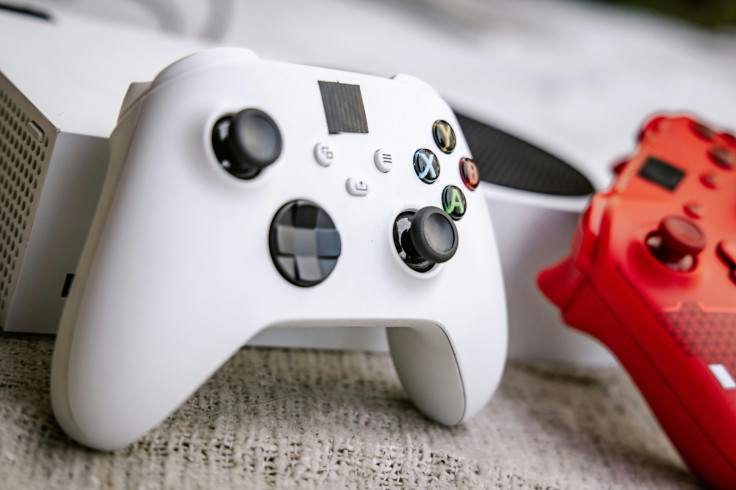Xbox Embraces PC Hybrid Future as Microsoft Readies Next-Gen System
Microsoft readies next-gen Xbox as a PC-console hybrid, marking a new era of unified gaming and powerful cross-platform performance.

Microsoft is gearing up for a major leap in gaming hardware, with the next-generation Xbox expected to blur the line between console and PC. Emerging reports and leaks suggest a revolutionary hybrid design that could redefine the way players experience gaming across platforms.
A Unified Vision for Xbox and PC
New info on the next-gen Xbox rumored to be $1000-1500 coming in 2027
— MBG (@xMBGx) October 27, 2025
- High end & expensive
- No paywalled multiplayer
- Will offer a console UI but is a full Windows device.
- Will offer Steam & access to all Steam games
- Backwards compatible with all Xbox games pic.twitter.com/59moB1wSWh
Microsoft's long-standing goal of uniting the Xbox and Windows ecosystems appears closer than ever. The upcoming Xbox system, rumoured to integrate PC-level performance with console simplicity, represents the company's boldest move yet toward a hybrid future.
Recent reports from developers and insiders indicate that the new Xbox development kits feature tools enabling smoother transitions between console and PC game builds, underscoring Microsoft's intention to erase the boundaries separating the two platforms.
CEO Satya Nadella has hinted that this next-generation console will serve as a 'premium hybrid system,' combining the versatility of a personal computer with the accessibility of a gaming console. This approach aligns with Microsoft's broader strategy of unifying its gaming ecosystem, where players can seamlessly switch between Xbox hardware, PCs, and the cloud.
The upcoming system's design, reportedly known internally as 'Xbox Magnus', is said to run a custom AMD chipset optimised for both gaming and productivity tasks, suggesting a shift toward a more flexible, performance-driven experience.
Hardware Innovation and Technical Advancements

At the heart of the next-gen Xbox is a commitment to raw power and efficiency. Insider reports point to AMD as the exclusive chip supplier for the new system, with early specifications indicating cutting-edge CPU and GPU integration designed for high-performance gaming and advanced multitasking.
The architecture is expected to leverage the latest RDNA and Zen technologies, ensuring compatibility with next-generation graphics and processing capabilities that rival high-end gaming PCs.
In addition to improved hardware, Microsoft is believed to be overhauling the system's operating environment. Developers have reportedly tested a new interface allowing games to scale dynamically across devices, improving visual fidelity on PCs while maintaining stable performance on consoles. This unified development environment could shorten release cycles and increase cross-play compatibility between Xbox and Windows titles.
The inclusion of PC-like functions, such as expanded mod support, advanced file management, and desktop-style applications, suggests that Microsoft wants the console to serve a broader purpose beyond traditional gaming. It reflects a growing trend among consumers who expect devices that can perform multiple roles, bridging entertainment and productivity.
Expanding Beyond the Living Room
Xbox is preparing for next-gen with a ton of new Xbox GDK dev features
— VGT Gaming News (@GAMERNEWSonX) November 10, 2025
• Microsoft is working to boost how Windows handles HDMI, video game shaders, and all sorts of additional things within the Xbox PC ecosystem.
• Microsoft is updating the Xbox GDK to prep for next-gen and… pic.twitter.com/luK3Msun7V
Microsoft's hybrid strategy extends beyond its core console. The company is reportedly exploring companion devices and handheld systems that tie into the broader Xbox ecosystem. The recent surge in popularity of handheld gaming PCs, like the ASUS ROG Ally, has not gone unnoticed, and Microsoft appears eager to tap into that demand.
Reports of a potential portable Xbox system, designed to complement the hybrid console, have surfaced, further fuelling speculation that the company aims to offer gamers freedom across multiple form factors. At the same time, Microsoft's push into cloud gaming continues to evolve.
The hybrid console's design is expected to enhance cloud connectivity, offering instant access to digital libraries and faster integration with Xbox Game Pass. By linking local hardware with remote streaming technology, the next-gen Xbox could deliver flexible gaming experiences that follow players wherever they go, without sacrificing performance or quality.
This approach aligns with Microsoft's larger gaming vision, which prioritises accessibility, device compatibility, and long-term sustainability. In essence, the company is not only preparing a new console but also redefining what a gaming platform can be in an interconnected world.
The next-generation Xbox represents a turning point for Microsoft's gaming division. By merging the strengths of PC and console technology, the company is setting the stage for a unified platform that meets the demands of both casual and competitive players.
As development continues and anticipation builds, one thing is clear: Microsoft's hybrid vision could reshape the future of gaming, creating a seamless experience that bridges devices, ecosystems, and generations.
© Copyright IBTimes 2025. All rights reserved.





















